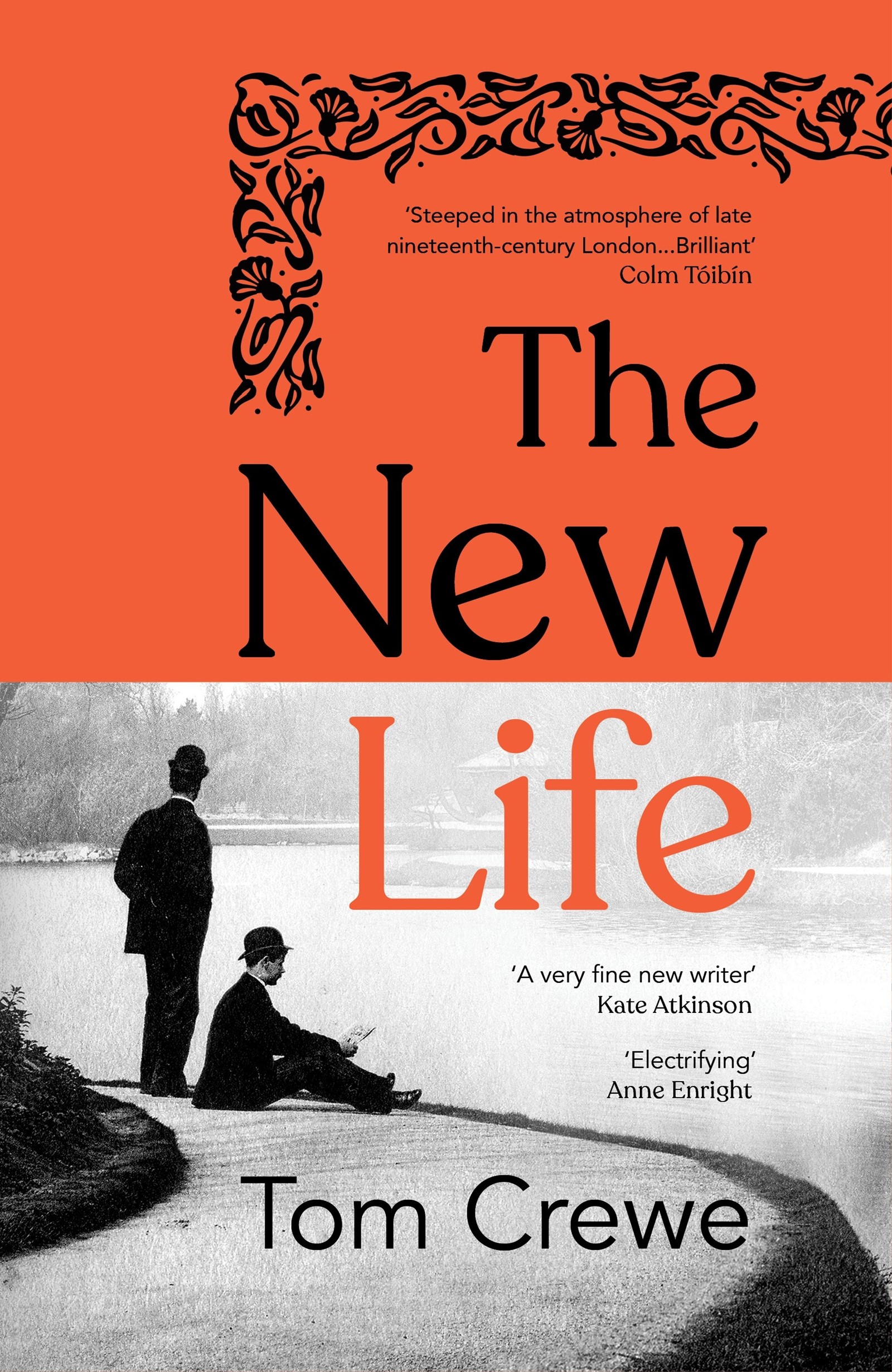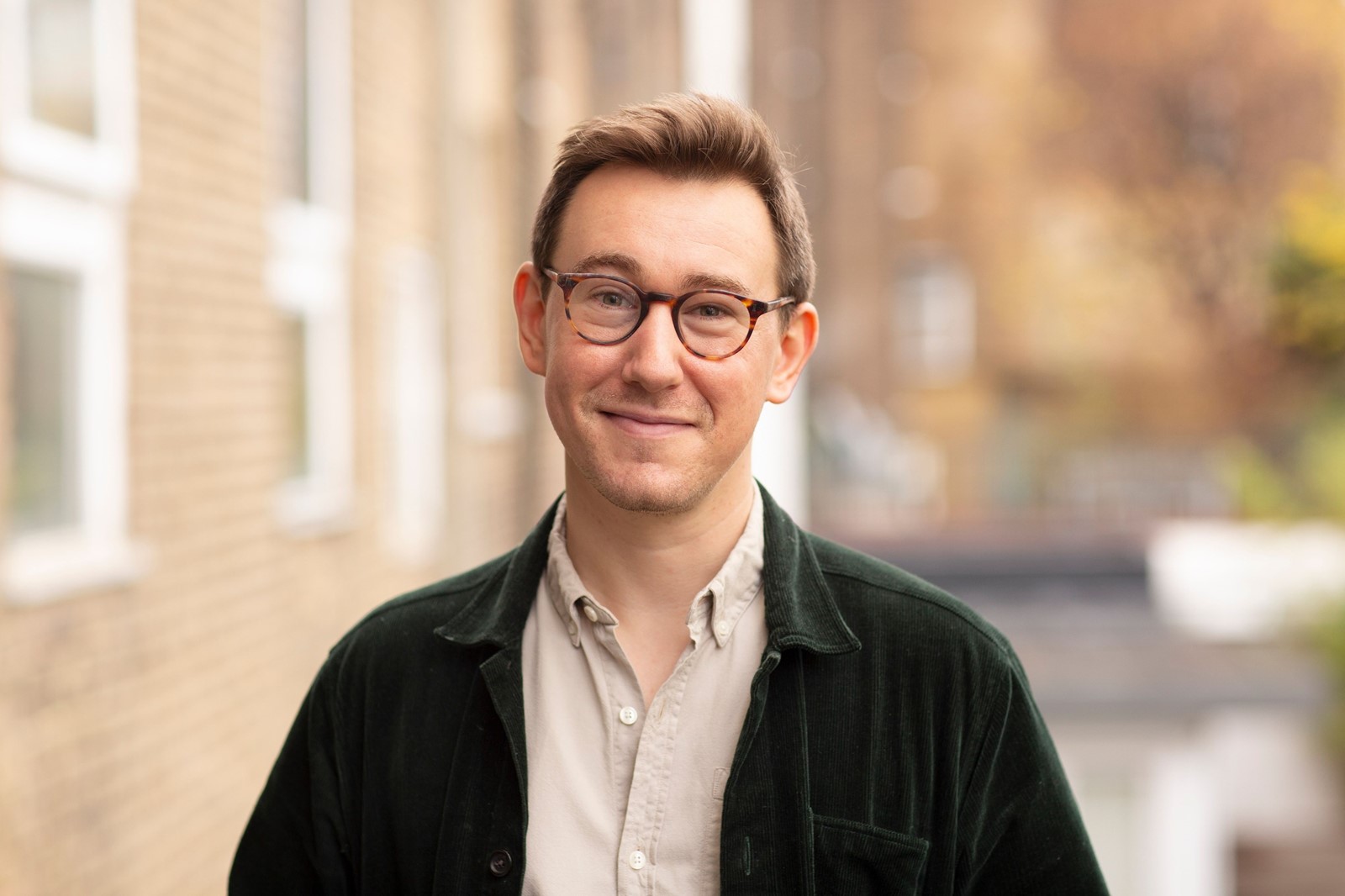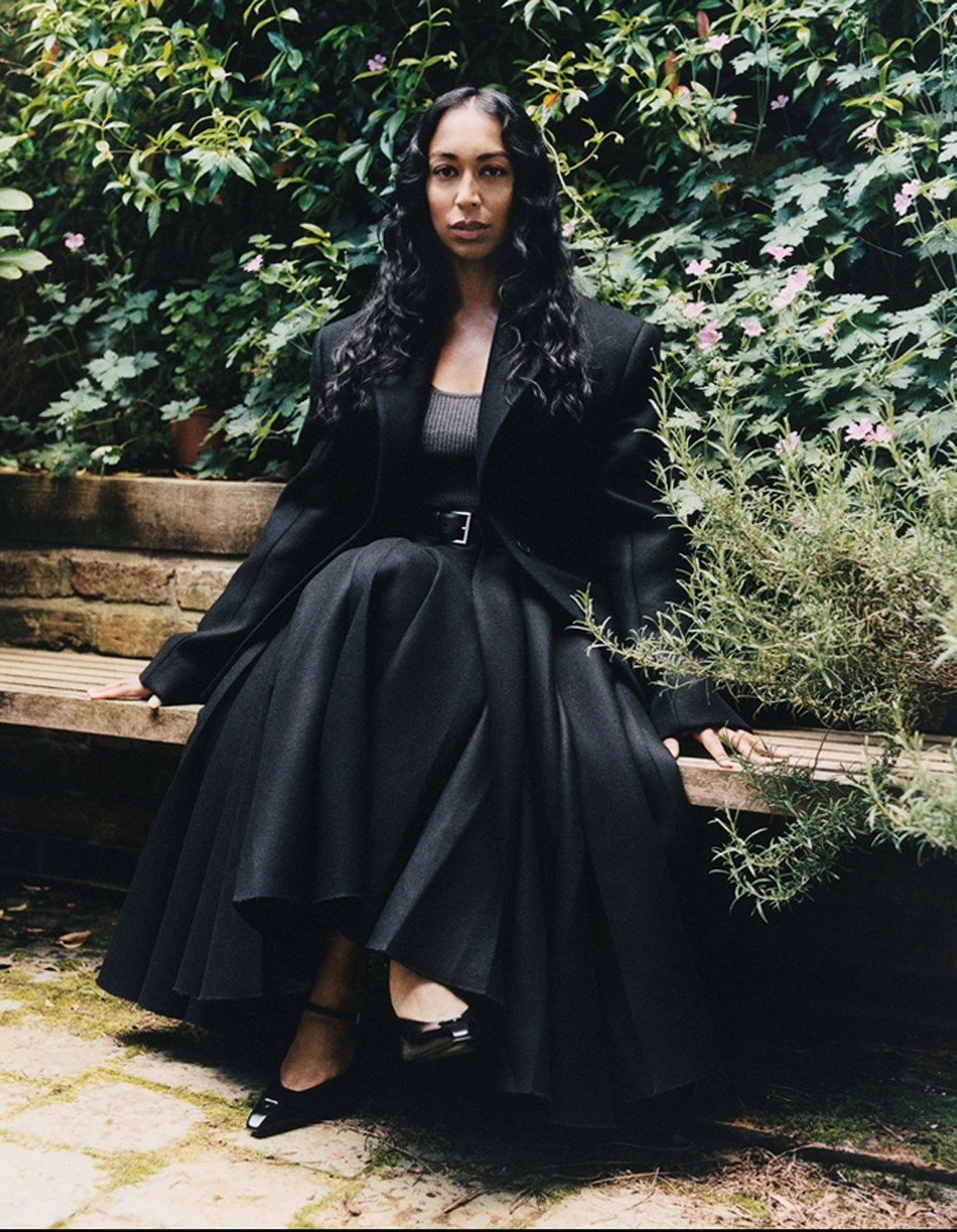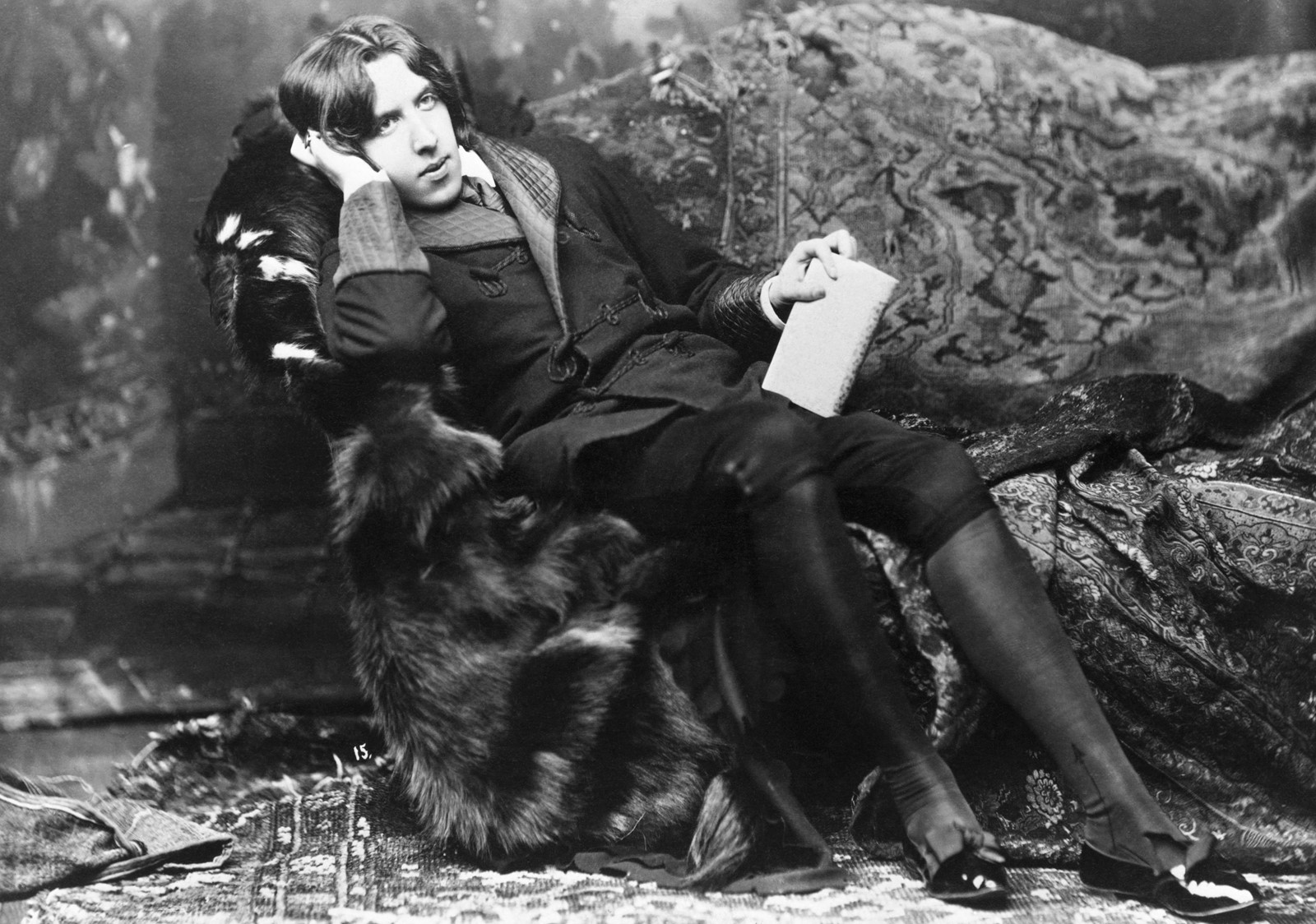Amia Srinivasan: You’re a 19th-century British historian by training, so you’ll have to forgive me for starting with Foucault. But when I think about sex and sexuality in the Victorian period – the broad historical backdrop of The New Life – I can’t help thinking of Foucault’s The History of Sexuality, and in particular his rejection of the “repressive hypothesis”, according to which human sexuality and discussions of it were repressed in the Victorian era. In fact, Foucault says, the 19th century teemed with various discourses about sex, especially scientific and legal discourses that sought to understand (and thus control) marginalised or ‘perverted’ sexualities, including homosexuality. These discourses did not repress sexuality so much, Foucault says, as produce it.
In some ways, your novel is consonant with Foucault’s rejection of the repressive hypothesis: its central characters are preoccupied with finding better, scientifically-grounded accounts of human sexuality, especially homosexuality – or ‘inversion’, as they call it – and strive to understand (and liberate) themselves in relation to those scientific accounts. But in other ways, the novel is also about sexual repression – state repression, the repression of heterosexual marriage, and the quieter repressions of internalised gay self-loathing. So: how useful is Foucault for thinking about Victorian sexuality? How do you as a historian characterise the Victorian sexual psyche?
Tom Crewe: Ah, Foucault. It’s a long time since we’ve had anything to do with each other and we were never that close to begin with, so all I will say is that it’s not obvious that the ‘invention’ of the ‘homosexual’ should inevitably have had repressive or controlling effects, especially since, in the case of John Addington Symonds, Havelock Ellis and Edward Carpenter, they saw this discursive move as emancipatory, a precondition of homosexuality’s legalisation and social acceptance, as well as a prelude to a more general reconsideration of sex and its significance for human happiness. I think an unfortunate effect of Foucault’s work, as it was absorbed by academia, was that it made historians reluctant to call people or sexual acts in the past ‘homosexual’ or ‘gay’ since these terms ‘did not exist at the time’ or were recent creations. This gave some homophobes a spurious defence when suggestions were made as to the inclinations of their heroes, but it also – or so I thought – tended to downplay the reality of non-opportunistic homosexual desire as a constant in history, reducing it to recorded acts performed and then deeming these inadequate evidence anyhow, because they were assumed to have taken place in a fuzzy sexual universe.
If, as it seems to me, and as it seemed to Symonds and Carpenter, terms like ‘homosexual’ were invented in the effort to describe a type of person that has always existed, then they are in essence just a shorthand. Each term has its history, associations and effects, but – and perhaps this makes me an unsophisticated thinker – I think it’s the sexual feelings that fundamentally matter, and that these have existed across time. For that reason, I don’t find the Victorian sexual psyche, as far as it can be defined, alien or outlandish, or hard to speculate on. It is the product of sexual feeling filtered through observable social beliefs and conditions. I think of historians’ view on the essential otherness of the past as a ‘glass half full, glass half empty’ situation. You either look for the constants, the similarities, or you look for the differences. I’m someone who sees the past, in broad terms, as a fairly recognisable, comprehensible place (I wonder if there is more self-flattery in thinking otherwise).

AS: One of the many things that The New Life does so well is to capture the spirit of progressive, scientifically-based optimism – indeed, utopianism – that was such a strong intellectual current in 19th-century Britain. Most obviously, the title of the book comes from the name of a group, The Fellowship of the New Life, to which one of your two protagonists, Henry Ellis, belongs, along with his wife Edith: a group dedicated to socialism, moral regeneration and what John Stuart Mill called ‘experiments in living’.
Henry and Edith’s marriage – unconventional, unconsummated, and complicated by the presence of Edith’s lesbian lover Angelica – is one such experiment, with poignantly mixed results. Another such experiment is the book that Henry co-authors with your other protagonist, the intellectual John Addington, a book that promises to document in neutral, scientific terms the life and sexual histories of male inverts, in order to reveal inversion as a wholly natural and morally permissible phenomenon. Am I right to detect in the book a certain nostalgia for that sort of optimism? Does that sort of optimism have any place now, in the 21st century?
TC: An easy answer, I suppose, would be to say that a progressive, scientifically-based optimism is exactly what we need – do we need anything else? – in our age of climate crisis. Yet the defining emotion on the progressive side of politics right now is not optimism but anger, or rage: at injustice, prejudice, corruption, greed, inactivity. The Victorians had a lot to be angry about, and you can’t read Ruskin or Morris, say, without feeling their anger at the manifold injustices of their society and the stupidity of many of its orthodoxies. And yet even these countercultural figures were intimately of their time, which means that they were also optimists, and – which is perhaps another way of putting it – idealists. (There is a case for saying that countercultural figures are always more expressive of their historical moment than representatives of the dominant culture – just look at the 1960s, for instance. Who will look more typical of the 2020s in 50 years’ time: the CEO of Shell or Greta Thunberg?) 19th-century progressives did not believe that human intelligence had exhausted the world’s possibilities, nor had they lost faith in the idea of persuading people into a different way of thinking. They believed, sometimes to the point of naivety (it could be a deliberate naivety), in new forms of living, the possibility of a better future. Our unique situation, after all the terrible disabusals of the 20th century, is that we occupy a historical moment when the world’s possibilities seem as though they may literally be exhausted. It is much harder to imagine a better future when the very idea of the future is under attack. And yet we have no choice. We are obliged to imagine a better future, since the alternative is none at all, or one too horrible to contemplate. We must all be optimists now. Unfortunately, our politics gives us much reason to be cynical. But cynicism, while it has its uses, is antithetical to progressive politics. We have to cultivate different modes of relating to our situation, and to others. There is no quality I dislike more than cynicism. Perhaps that does link me temperamentally to my Victorians. They were in earnest.
“We have to cultivate different modes of relating to our situation, and to others. There is no quality I dislike more than cynicism. Perhaps that does link me temperamentally to my Victorians. They were in earnest” – Tom Crewe
AS: Your main characters are based on actual historical people – John Addington Symonds and Henry Havelock Ellis – who are in many ways similar to your protagonists. Symonds and Ellis did in fact co-author the first medical textbook on male homosexuality, Sexual Inversion; Ellis was in fact a member of the Fellowship of the New Life, as was his wife, Edith, an important women’s rights activist and lesbian; and a bookseller was in fact prosecuted for stocking Symonds and Ellis’ book. There are many other convergences between your novel and history. But there are also departures. Some are for the sake of narrative drama: most obviously, you predate the publication of Sexual Inversion so it coincides, terrifyingly, with the imprisonment of Oscar Wilde for sodomy. (Interestingly, the Oxford historian Emily Rutherford has suggested that Wilde, when testifying at trial that homosexual love ‘is that deep, spiritual affection that is as pure as it is perfect’, was paraphrasing Symonds – whom he began reading as an undergraduate at Trinity College Dublin.)
More intriguingly, you also chose not to take up some of the more difficult aspects of the historical Symonds and Ellis. I’m thinking, in particular, of Ellis’ involvement with eugenics (he was, I believe, the vice president of the Eugenics Society) and Symonds’ defence of pederasty. Both the fictional Addington and the historical Symonds write a book titled A Problem of Greek Ethics, but the former describes it as a book ‘of love between men’, while the latter’s book is one that defends the ancient Greek practice of adult men having sex with adolescent boys – a practice that, on Symonds’ view, is ethically vindicated because of its orientation towards the moral education of the boys. Of course any novelist who draws on history has to make countless decisions about inclusion and exclusion. What principles or instincts did you rely on when thinking through those decisions?
TC: I was simply interested in what would make for a good novel. Or, to be more specific, a good novel that it was in me to write. At no point did I feel any duty to the historical Symonds and Ellis. You say that the most obvious departure is my predating of Sexual Inversion, but actually the biggest and most determining departure is the fact that my Symonds-inspired character is alive and doing in 1894, when the real Symonds died in 1893. This means that the entire narrative is an invented one, as much as it borrows elements from the historical record. In my afterword, I say that I have been ‘ruthless’ in my use of historical material (perhaps other people would say ‘reckless’): if something served my purposes, I used it for those purposes; otherwise, I had no care for it. When I was proceeding in this way, it would have been perverse to bring in eugenics and pederasty unless I wanted to explore these ideas with seriousness and nuance in fiction, and saw a way in which this could be done. Someone else might fancy writing that novel. Not me.

AS: The historical Ellis, long after he co-authored Sexual Inversion with Symonds, wrote about what he called ‘sexo-aesthetic inversion’, which we would now call transgenderism. He diagnosed the phenomenon as rooted in a male over-identification with an admired female object, usually the mother, and said it was remarkably common, second only to homosexuality as far as ‘deviant’ sexualities went. Did the historical Ellis’ work on this subject influence how you wrote about Henry? Should we read Henry – who remains a sexually ambiguous figure in a book full of resolutely straight and gay men and women – through the lens of ‘over-identification’?
TC: What an interesting idea, which I wish I could say yes to. Now you point it out, I wonder whether Ellis ever did think of himself as somewhere on that spectrum. It’s a very long time since I read his autobiography (published in 1940), but as I remember it, it is full of admired women: his mother, his friend and would-be lover Olive Schreiner, his wife Edith Lees, his partner Françoise Lafitte.
It’s revealing that Ellis’s urolagnia (a sexual interest in urination) made it difficult for posterity to ‘place’ him sexually, the absence of an obvious interest in penetrative intercourse rendering him indeterminate. Revealing too, that at least one biographer reached the conclusion that he must have been gay, though all the evidence points to an interest solely in women. Perhaps Henry’s urolagnia has the same effect in my novel; the shifting of sexual interest away from the immediately obvious makes him ambiguous, to himself, to other characters, and to the reader. It’s an aspect of the novel that has only been hinted at by reviewers, and has rarely been brought up in public conversations about it. What I take from this is that it’s harder (as Henry finds it harder in my novel) to talk about what we quite unhelpfully call ‘kinks’ or ‘fetishes’ than it is to talk about homosexuality. Homosexuality has a lineage, a cultural and historical tradition, which has always been incredibly helpful when you are making a case for legitimacy. It is also ultimately more reconcilable to familiar and familial models of human companionship. Urolagnia, to persist with this example, doesn’t have that. Maybe it takes us too directly into the bedroom, into the psyche. When we consider what still has to be done to make sex ‘free’ – from shame, from snickering prudes, from needlessly imposed barriers to desire – I think this might be the area we need to be working in.
“Homosexuality has a lineage, a cultural and historical tradition, which has always been incredibly helpful when you are making a case for legitimacy. It is also ultimately more reconcilable to familiar and familial models of human companionship” – Tom Crewe
AS: Plato and Walt Whitman are two important touchstones for many of your male characters, who read their work as straightforward odes to the great beauty and dignity of love between men. The reality of Plato and Whitman is arguably – or at least, I would argue – somewhat more complicated. Plato is often misread as a defender of the ancient Greek institution of paiderastia, when in fact he insisted that the love between older and younger men should never be physically expressed in sex. (In the Republic, Plato has Socrates say that ‘sexual pleasure mustn’t come into’ relationships between the guardians and the young boys they are educating, ‘if they are to love and be loved in the right way.’) And the institution of paiderastia itself was an exclusively aristocratic and male one, all about initiating noble young men into the highest level of Greek social and political hierarchy.
Anal penetration was apparently prohibited within paiderastia, in favour of intercrural sex, ie sex in which one partner inserts his penis between the other’s thighs, of which there is a memorable scene in your book. The classicist Kenneth Dover argued that the prohibition on penetrative sex with men had to do with the association between penetration and subordination: women were penetrated because they were inferior. Meanwhile, in Whitman’s poems, we find a celebration of love between men that defies distinctions in class – ‘Here to put your lips upon mine I permit you, / With the comrade's long-dwelling kiss or the new husband's kiss, / For I am the new husband and I am the comrade’ – but we also know that Whitman disavowed the homosexual reading of his poetry, including in a letter to the historical John Addington Symonds. And again, there isn’t much room for women in Whitman’s vision of ‘comradeship’, sexual or not: ‘I will make inseparable cities with their arms about each other's / necks, / By the love of comrades, / By the manly love of comrades.’ I’m interested in what you make of Plato and Whitman, and their idealisation over the centuries by gay male intellectuals. How do you read them?
TC: I’m no classicist (in fact I am notorious among my colleagues at the LRB for my lack of interest in pieces on classical subjects – also on my banned list are spies and outer space), but I know that James Davidson, in The Greeks and Greek Love (2007), has disputed the Dover thesis, and the rather arid view of Greek homosexuality you might take from Plato. In my novel, John encounters Plato as a young man and falls for his ideal of chaste, elevating male love; his intellectual progress in adulthood is in part about understanding that this is useless in modern life, and that sexual desire overwhelms idealism. This is also, roughly, what the real-life John Addington Symonds came to think. Intercrural sex might have played a philosophical role in Ancient Greece, but it was also – as we know from the personal accounts in Symonds and Ellis’s Sexual Inversion (1897) – something that men did for fun in Victorian Britain. As for Whitman, well, yes, he denied the homoeroticism in that letter to Symonds. But Symonds didn’t believe him, and quite rightly too. The poetry was there for the taking, and it was taken in the right spirit.
Just as I’m not a classicist, I’m also not a Whitman expert, or even a great lover of his work. What I was interested in was the way Plato and Whitman served the needs of gay men in the 19th century. If they misread them or read them selectively, that’s all part of the historical, human interest. There is of course an irony in the fact that these men then became inspirations for others further down the chronological chain. People who know nothing about Plato or Whitman have been inspired by Oscar Wilde, who is then himself only half-understood, has his complexities ironed out. In my book, Wilde doesn’t have it quite so easy.

AS: Plato may not have been much interested in women, and in The New Life, Henry and John decide that their book will only be about male ‘inverts’. (The historical Sexual Inversion did include women – but only, it seems, at Ellis’ prompting.) But you are interested in women; a central relationship of the book is between Henry’s wife Edith and her friend and lover Angelica, and I think you reserve a special sympathy for John’s wife Catherine, who concedes to John bringing in his male lover to live in their house. By being lovers, Edith and Angelica are not breaking the law, and yet they are hardly free. Could I invite you to talk about your women characters, how you went about creating them and the psychic specificities of their situations?
TC: The point about women being included in the real Sexual Inversion is a good example of where facts got in the way of novel-construction. I had to make my fictional book less radical than the original, because otherwise I had to bring Edith and Angelica too much into the project, account for the other women they knew etc. It widened the frame too much.
I like to say that The New Life is a novel as much about women as men: it is putting the experience of women in parallel with the experience of men and seeing where they diverge, or conflict. Edith and Angelica were hard to write, because, on account of the form I’d adopted, they can only be seen from Henry’s perspective, which is for him frustratingly partial. What helped was happening to read a Gore Vidal essay on The Golden Bowl, and thinking about the triadic relationships in that great book. When I started to see Edith and Angelica more definitely, as forming with Henry a trio in which the balance of power regularly shifted, they opened up for me. Edith and Angelica’s relationship is exposed by what the presence or idea of Henry brings out in each woman, but also by the ways they exclude him. They are perhaps the most objectively ‘free’ characters in the book, and yet this isn’t much when that freedom relies on secrecy, when women are systematically oppressed, and when male homosexuality is criminalised. That is why it takes Angelica to really see the truth that no one is free until everyone is.
Catherine is the most unfree character in the book. She has not had the opportunities of her university-educated daughters, nor the sort of intellectual awakening had by Edith and Angelica, who are essentially ‘new women’ of the 1890s; nor has she had the freedom of her husband, John, to discover sexual happiness outside of their marriage. If I hadn’t sympathised with Catherine, I would have been a) a bad novelist b) probably a bad person and c) would have failed in one of my chief objectives, which was to examine what it meant to inhabit British society at that time. It was especially important to show the terrible effects of John’s behaviour. If the reader had been invited merely to pity him as a closeted gay man – almost axiomatic in our contemporary moment – then they would not appreciate, truly, how a homophobic society hurts women as well as men. What’s worse is that John understands this; one of the reasons he wants to write his book is to save men and women from marriages like his own. But to make this case in public, he has to do yet more damage, inflict more humiliation. In this way, though she is by no means straightforwardly a ‘victim’, Catherine becomes the novel’s moral centre.
“It’s ironic that, of all words, ‘queer’ should be presiding over a revivification of labels and categories. I worry we are seeing a surrender to capitalist logic, rather than a genuine cultural advance” – Tom Crewe
AS: Can I ask you what you think about the current state of gay – or perhaps better, queer – politics?
TC: Speaking only for myself, I’m not entirely at ease with the word ‘queer’. Not because of its past history as an insult, since, when I was growing up, ‘gay’ was an insult. And not just because ‘gay’ therefore seems an excellent reclamation already, a word that meant nothing good in my childhood and can now be worn with dignity. It is more that I feel ambushed; that only a few years ago I associated ‘queer’ mainly with academia, and now find it freely applied to people like me, and to my work, without my ever getting a vote. This isn’t the end of the world. No one gets a vote on cultural change. What bothers me on a slightly higher level is the conjunction between the rise of ‘queer’ and the new mainstreaming of ‘queer culture’. I think we can now talk about ‘pop queer’ in the same way as ‘pop feminism’, and regret the commercialisation and thinning out of an idea, and, by extension, of specific forms of culture and experience. I dislike it when I feel that ‘queer’ is being used as a tag, and as an intensifier: ‘queer love’, ‘queer desire’. Love and desire are not necessarily more interesting for being queer. Love and desire don’t need to be classified, reduced to archetypes. Wasn’t that the point?
It’s interesting that over the past 40-odd years so many figures resisted being called ‘gay writers’ and disliked their books being put on a shelf categorised as ‘gay’; now, to be a ‘queer writer’ is for some a blazoned identity and possibly a sign of sales potential, and there are more shelves dedicated to ‘queer’ fiction than ever before. Of course this contrast can be overdrawn, and I can also see how it can be construed as progress, but I don’t want to be described as a ‘queer writer’ any more than I would have liked to be called a ‘gay writer’. Again, it’s ironic that, of all words, ‘queer’ should be presiding over a revivification of labels and categories. I worry we are seeing a surrender to capitalist logic, rather than a genuine cultural advance. But sometimes, we must admit, capitalism creates a cultural advance, or aids it, and perhaps we need ‘queer’ as a staging post on the way to an embrace of universality in individuality.
The New Life by Tom Crewe is published by Chatto & Windus and is out now.
